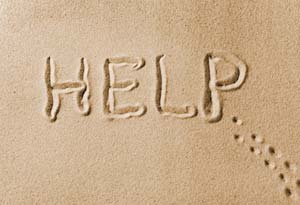Why Do I Still Feel So Awful?

Photo: Thinkstock
The song says love is all you need, but you need attachment, too, and it is the rupture of attachment that causes the deepest wound when a lover leaves.
Attachment begins with the mother-infant bond; it is one of our most primary biological behaviors. A good, strong attachment grows when our emotional and physical needs are repeatedly fulfilled. For an infant or a young child, having those needs met can be a matter of life and death, and so the fear of rejection or abandonment is very powerful, even hardwired into our emotional circuitry. Psychologists have established that we often replay our original bonding experience with the people we fall for as adults. So when a lover says goodbye, you might feel as emotionally vulnerable as the child you once were—the withdrawal of your partner's attentions evokes all the feelings of helplessness, sadness, and anxiety that you felt when your life literally depended on being cared for. Especially if your first attachments were shaky, you may be prone to falling hard. Sure, we're all grown up; we know that we're not really going to die. But damn, it feels like it.
Crying is a perfectly normal, healthy response, and it's likely to attract the concern of your good friends, who will endeavor to give you some of the lost love and support you're grieving for. The conventional wisdom that you should try to find happiness and solace from within, may not pull you through at this point, says Susan Anderson, author of The Journey From Abandonment to Healing (Berkley). "The antidote the rejection" she explains, "is being around people who love you and can give you validation. You need to see yourself reflected in their eyes."
Another route to resilience is to "get out, get out, get out," says Jane Greer, Ph.D., a marriage and sex therapist in New York City. Being involved in activities not only exposes you to other people but also helps you notice different aspects of your abilities, reminding you that you're so much more than the One Who Was Left.
You'll feel better in a couple of weeks, say your friends, or a couple of months at the outside. When you do start to recover, you can start sorting through what didn't work in your relationship: how much of it was your responsibility and how much your partner's. But what if months go by, then more, and you still feel as if you're wandering around in a jungle of bad feelings? Have you tripped on the roots of your grief and tumbled into a chasm of depression? "Give it about six to nine months," says Greer. "It often takes that long after a serious relationship for you to pick up the pieces and start rebuilding your self-esteem." It may take even longer if you had the lousy luck of being betrayed—say you walked in on your husband of 30 years having sex with, well, anybody. Then, according to Greer, you may have to work through a range of feelings: shock, rage, sadness, and depression. No matter how the relationship ended, or how many months have gone by, it's a bad sign if your energy becomes so depleted that you're unable to invest the time and effort to take care of yourself—you don't care how you look, a daily shower's a thing of the past, you can't get out of bed. Or you might notice a self-destructive pattern (too much wine with dinner too often) or behavior that puts the positive things in your life, like your job, at risk. That's when you should get help; the burden of the loss is too much for you. Let a therapist or a counselor help you unpack the load. She'll encourage you to talk about your anger and pain, suggest coping skills for dealing with them constructively, and help you get on with your life.
More from the O relationship vault: Get Dumped? Good. Now, Pull Yourself Together!



